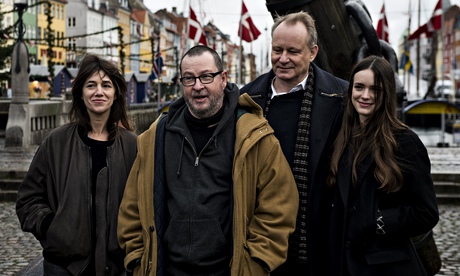THE NINNY
by Anton Chekhov
Just a few days ago I invited Yulia Vasilyevna, the governess of my children, to come to mystudy. I wanted to settle my account with her.
“ Sit down, Yulia Vasilyevna,” I said to her. “ Let’s get our accounts settled. I’m sure youneed some money, but you keep standing on ceremony and never ask for it. Let me see. We agreed to give you thirty rubles a month, didn’t we?”؟
“Forty”.
“No, thirty. I made a note of it. I always pay the governess thirty. Now, let me see. You have been with us for two months?”
“Two months and five days”.
“Two months exactly. I made a note of it. So you have sixty rubles coming to you. Subtract nine Sundays. You know you don’t tutor Kolya on Sundays, you just go out for a walk. And then the three holidays”...
Yulia Vasilyevna blushed and picked at the trimmings of her dress, but said not a word.
“Three holidays. So we take off twelve rubles. Kolya was sick for four days – those days you didn’t look after him. You looked after Vanya, only Vanya.
Then there were the three days you had toothache, when my wife gave you permission to stay away from the children after dinner. Twelve and seven makes nineteen. Subtract... That leaves... hm... forty-one rubles. Correct?”
Yulia Vasilyevna’s left eye reddened and filled with tears. Her chin trembled. She began to cough nervously, blew her nose, and said nothing.
“Then around New Year’s Day you broke a cup and a saucer. Subtract two rubles. The cup cost more than that – it was an heirloom, but we won’t bother about that. We’re the ones who pay. Another matter. Due to your carelessness Kolya climbed a tree and tore his coat. Subtract ten. Also, due to your carelessness, the chambermaid ran off with Vanya’s boots. You ought to have kept your eyes open. You get a good salary. So we dock off five more... On the tenth of January you took ten rubles from me”.
“I didn’t,” Yulia Vasilyevna whispered.
“But I made a note of it”.
“Well, yes – perhaps”...
“From forty-one we take twenty-seven. That leaves fourteen”.
Her eyes filled with tears, and her thin, pretty little nose was shining with perspiration. Poor little child!
“I only took money once,” she said in a trembling voice. “I took three rubles from your wife... never anything more”.
“Did you now? You see, I never made a note of it. Take three from fourteen. That leaves eleven. Here’s your money, my dear. Three, three, three... one and one. Take it, my dear”.
I gave her the eleven rubles. With trembling fingers she took them and slipped them into her pocket.
“Merci,” she whispered.
I jumped up, and began pacing up and down the room. I was in a furious temper.
“Why did you say ‘merci?” I asked.
“For the money”.
“Don’t you realize I’ve been cheating you? I steal your money, and all you can say is‘merci”!’
“In my other places they gave me nothing”.
“ They gave you nothing! Well, no wonder! I was playing a trick on you – a dirty trick... I’ll give you your eighty rubles, they are all here in an envelope made out for you. Is it possible for anyone to be such a nitwit? Why didn’t you protest? Why did you keep your mouth shut? It is possible that there is anyone in this world who is so spineless? Why are you such a ninny”?
She gave me a bitter little smile. On her face I read the words: “Yes, it is possible”.
I apologized for having played this cruel trick on her, and to her great surprise gave her the eighty rubles. And then she said “merci” again several times, always timidly, and went out. I gazed after her, thinking how very easy it is in this world to be strong.
1883.
![Émile Savitry
Anouk Aimée and her cat Tulip Flower, 1947
[via Le Journal De La Photographie]](http://25.media.tumblr.com/tumblr_md7pgpFmEr1qzhl9eo1_500.jpg)

![Émile Savitry
Anouk Aimée and her cat Tulip Flower, 1947
[via Le Journal De La Photographie]](http://25.media.tumblr.com/tumblr_md7pgpFmEr1qzhl9eo1_500.jpg)


